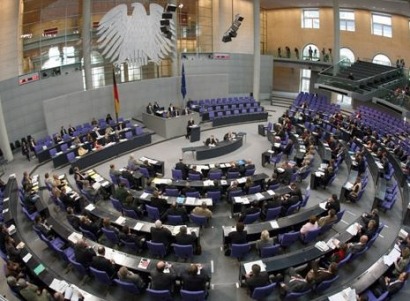
In the past, Germany’s most energy-intensive industries have either been exempt from renewables surcharges or eligible for deep, deep discounts.
But under the new, 204 page draft, large manufacturers producing their own electricity with new renewables-based or hybrid power plants will pay 30 percent of the current 6.24 cents per kilowatt hour surcharge in 2015.
In addition the revised law calls for the tariff to rise to 35 percent of the kilowatt hour surcharge in 2016, and 40 percent from 2016.
Existing plants and small plants such as solar panels on roofs would remain exempt from the surcharge, while other new plants would pay the full surcharge.
The amendment to Germany’s Renewable Energy Sources Act (EEG) is dependent on a stamp of approval from the European Commission; otherwise billion-dollar rebates for industry through the green energy surcharge can no longer be sustained.
As a result, the commission has been exerting its considerable influence over the proposal, requesting amendments as recently as last Sunday.
On Monday, party leaders from the Christian Democratic Union, the Christian Social Union, and the Social Democratic Party met with German Chancellor Angela Merkel to discuss the matter, and on Tuesday morning, the Bundestag’s Energy and Economic Affairs Committee met to try to sort the situation out.
That, it turned out, took all day, with approval of the new set of amendments not coming until after nightfall.
In a statement, the government said, “The legislation was drafted in accordance with European law and in close discussion with all concerned, including the Commission as well as Germany's federal states. We are still in a position of close discussion with the Commission which is going constructively."
Two opposition factions of the government, the Green Party and the Left Party, made no secret of their concerns over the lateness of the amendment’s presentation. The Green Party did so by voting against the draft. Die Linke, of the Left Party, did so by refusing to event cast a vote.
Both parties say their deep reservations are based on fundamental concerns about the future direction of the government when it comes to its future support of the renewables sector.
German lawmakers said they were somewhat surprised by the EU’s last minute request for changes to the law, as they’d been in consultation with the European Commission for over a year on possible reforms.
Among the issues reported to be most of concern to the Commission is how the surcharge will be applied to imported energy, especially that generated from renewable sources. Germany intends to treat this energy the same way it treats energy from domestic renewable sources. In addition to the price, buyers will have to pay the surcharge that helps finance the expansion of renewables.
The EU says the provision is illegal because the surcharge effectively amounts to a tariff.
For additional information:

